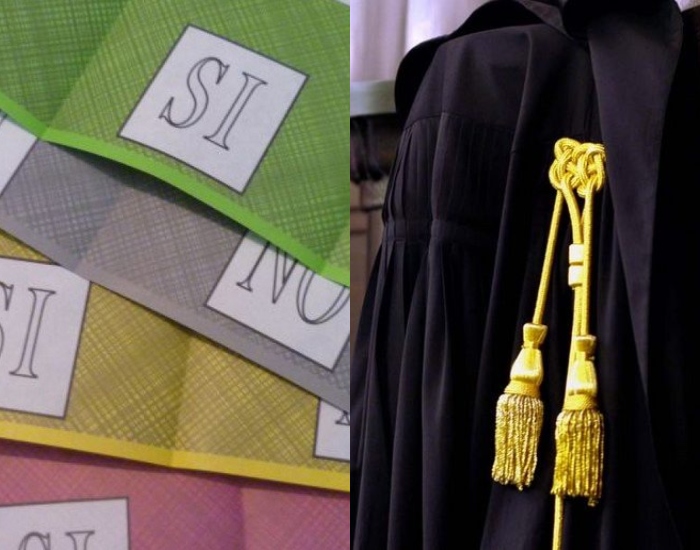About the referendum on justice

The Notepad of Michael the Great
While aware that readers of this column may care little or nothing about the opinion of the writer, tomorrow I will vote Yes to the five abrogative questions of the referendum on justice promoted by the Lega and the Radical Party. A convinced Yes to the three questions relating to the separation of functions between the prosecutor and the judge, the professional evaluation of magistrates, the election of the professional members of the CSM. But also a Yes to the two questions which also present some critical points: abolition of the Severino law and limitation of precautionary measures.
As Ermes Antonucci explained in Il Foglio (6 June), the aim of the first is to repeal the rules that provide for the suspension of local administrators, such as regional presidents or mayors, following sentences of even first degree convictions. for some serious crimes (such as mafia association or crimes against the public administration). These are paradoxical norms, given that according to our Constitution (article 27) citizens are innocent until a definitive sentence, yet in the past these norms have led in several cases to the suspension of local administrators by virtue of only first degree convictions, then canceled. in subsequent degrees of trial, when the damage, from the point of view of the functioning of democratic institutions, had already been done. However, the question provides for the abolition of the entire Severino law, therefore also of the parties that establish the incandiability of politicians who have been definitively convicted of serious crimes.
The second aims to limit the cases of application of precautionary measures (preventive detention, house arrest, ban on residence …). According to the current legislation, the judge, at the request of the prosecutor, can issue a precautionary measure in three cases: danger of pollution of evidence, danger of escape and danger of repetition of the crime. The question addresses the latter aspect. If the question were approved, it would be possible to proceed with the deprivation of liberty due to the risk of "reiteration of the same crime" only for crimes of organized crime, subversion or crimes committed with the use of weapons or other means of personal violence.
The intent is commendable, especially if we consider the high number of citizens imprisoned and deprived of their liberty before the trial, and then often acquitted of the charges. On the other hand, even if not all jurists agree, the repeal of the law risks making the precautionary measures inapplicable for various socially very "sensitive" crimes such as theft, robbery and, in some cases, stalking, if done without weapons and without personal violence.
To explain why I have overcome these perplexities, let me have recourse to a literary metaphor.
Written between 1612 and 1614, “Fuente Ovejuna” is perhaps the most famous comedy by Lope de Vega, one of the most prolific playwrights in Spanish literature. It is set in the second half of the fifteenth century in Andalusia, during the struggle between the pretender to the throne of Castile, Giovanna la Beltraneja, and the Catholic sovereigns Isabella and Ferdinando. Fuente Ovejuna is the name of a village that is part of a "commenda" (a kind of lordship) of the military order of Calatrava. His "comendador" (commander) is a partisan of Beltraneja, Férnan Gómez. An overbearing and cruel despot, he imposes the “ius primae noctis” on all the local girls. When he imprisons the young Frondoso and kidnaps his betrothed Laurenzia, the people rebel and behead him.
Having won the war of succession, Isabella and Ferdinando send a judge to instruct the trial against the rioters. Despite the torture, when they are questioned they all reply that it was Fuente Ovejuna, its three hundred inhabitants, who killed the tyrant. The judge, unable to discover the real perpetrators of the murder, then acquits them for lack of evidence. Rather than imprison the innocent, in fact, he prefers to let the guilty go free. Well, if he had been an executioner, he would have jailed them all.
In short, justicialism is: better an innocent in jail than a guilty one outside; guarantorism is: better a culprit out than an innocent in jail.
This is a machine translation from Italian language of a post published on Start Magazine at the URL https://www.startmag.it/mondo/a-proposito-del-referendum-sulla-giustizia/ on Sat, 11 Jun 2022 05:08:12 +0000.
